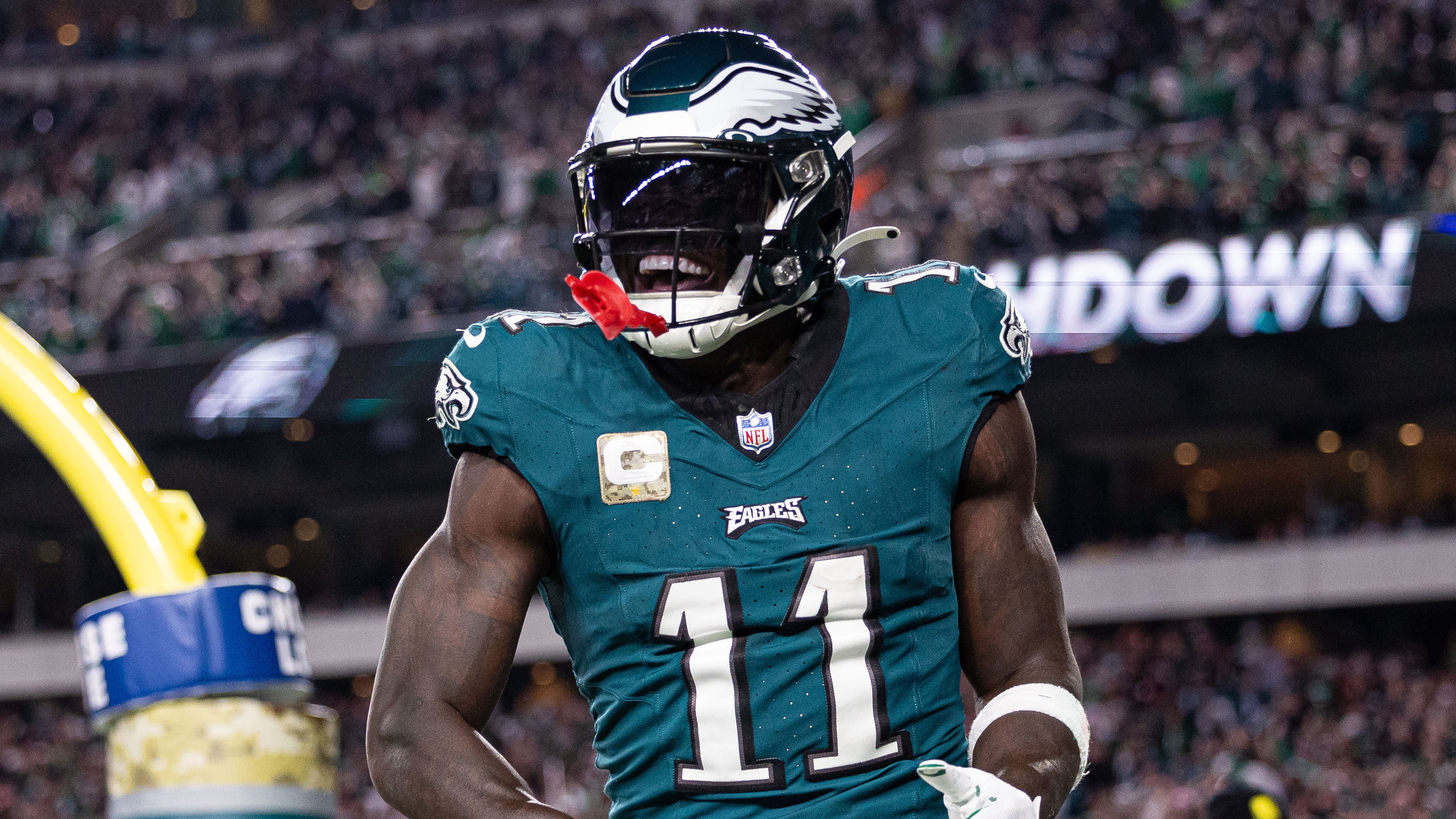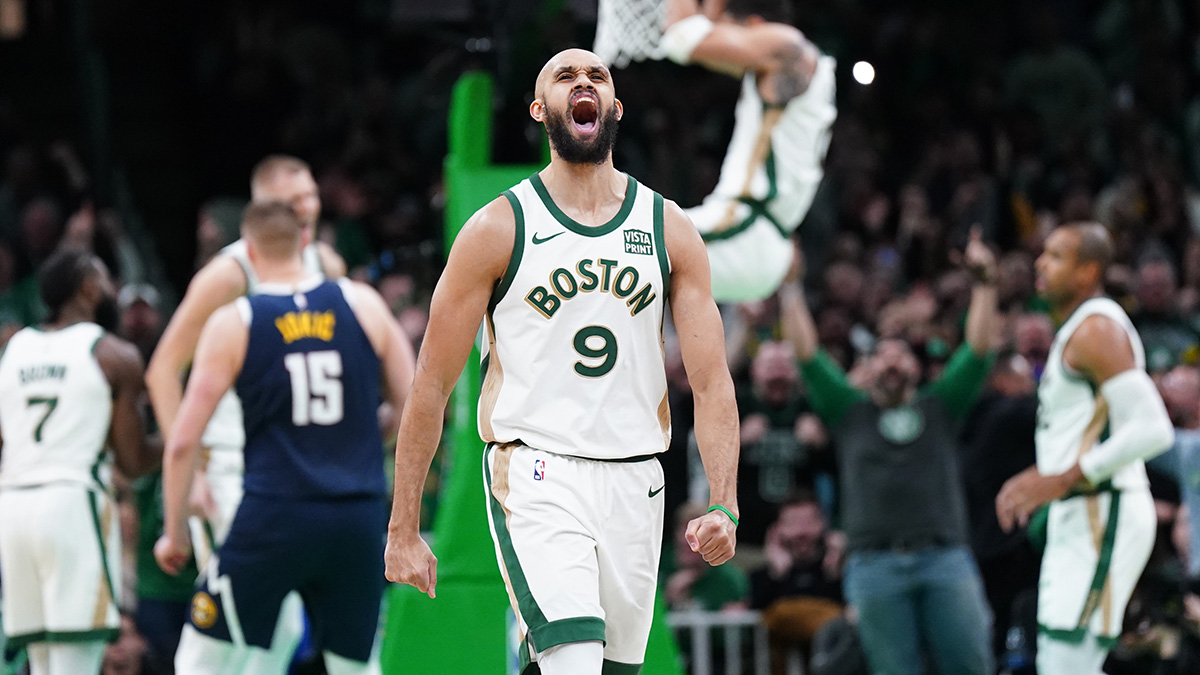Curran: How the military has influenced Belichick, the McCourtys and the Pats originally appeared on NBC Sports Boston
Bill Belichick’s appreciation and fascination with the military is well-documented.
He spent his formative years in Annapolis, Maryland. His father, Steve, was a legendary scout for the Naval Academy, working there from 1956 to 1989. Belichick was four years old when his father took the job as backfield coach/scout. Bill was eight when Joe Bellino won the Heisman for the Midshipmen, nine when Roger Staubach arrived and 11 when President John F. Kennedy -- a former Naval officer who was closely aligned with those Navy football teams -- was assassinated.
Get Boston local news, weather forecasts, lifestyle and entertainment stories to your inbox. Sign up for NBC Boston’s newsletters.
Belichick never enlisted (his father fought in World War II in both the Pacific and Europe), but the military is part of his DNA. Whether it’s showing appreciation, teaching some history, or drawing from his well of examples to make points about discipline, camaraderie and selflessness, Belichick’s authentic advocacy has had a measurable effect on his players through the years.
"You noticed immediately that it wasn’t lip service with him," said Chris Long, who spent the 2016 season in New England. "I think he taught us military history in the meeting room multiple times that offseason. If I had to guess what he’s reading on his back porch in early July it’s history. And in that way, I think his military appreciation is deeply rooted even beyond his Navy roots.”
Perry: How Joe Cardona's military experience helps him on the field
NBC Sports
But it’s also had a measurable effect on those who’ve served.
Larry White is the older brother of Devin and Jason McCourty. Seventeen years older. They were one when Larry enlisted in the Army, did his training at Fort Knox and Fort Hood then fought for nine months in Desert Storm as an E4 Specialist. White drove A1 tanks in combat.
“I'll die with (the memories of combat),” White said recently by phone. “Never goes. Never leaves. It’s part of who you are. You aren’t the same person. The person who goes there is not the person who comes back.
“It changes the things you see, the things you do,” he said. “Changes who you are, the mentality, the outlook on life. It changes how you see your future. Because when you’re there you’re day-by-day, hour-by-hour, minute-by-minute, second-by-second, you don’t see future. And when I came home there was nobody telling me to go to PTSD clinics or to go and seek help. You came home, you beared down and you tried to live your life the best way you could.
“When you go in, you’re taught to do the job,” he explained. “When I came back, I wasn’t taught how to be a civilian again. People wonder why you go through what you go through. I get it. It’s a tough life but if you have people who love you or want to be there for you that’s the best thing you can have.”
With his brothers both playing for Belichick, White’s been able to see the effort the Patriots head coach puts into honoring those who’ve served.
“He’s taking the time out to go into our lives and see what we’ve been through or what we’ve gone through and see what our mental thing is every day,” said White. “How we see life, which may be a little different from how you see life because of what we went through. It means a lot.”
In Devin McCourty’s case, Belichick’s time spent raising awareness among his team opened a communication channel between he and his older brother.
“When my brother came back from the Army, he was getting in a fight every weekend,” said McCourty. “That time in treats everyone differently. My brother, they used to call him ‘New York’ when he was in the Army, but he never talks about effects of being in battles. Being with the Patriots and learning what we have, it’s given me perspective with someone I’m close to and caused me to ask, ‘How was that. How are you now?’ It gives me perspective of how hard coming back home was. It’s very cool anytime you have adult conversations and learn different sides of things and some of that awareness came from meetings we’ve been in and activities we’ve done.”
One of the activities has been a visit to the Walter Reed National Military Hospital in Bethesda, Maryland each time the Patriots have won a Super Bowl and visited the White House. Another was in 2014 when the Patriots were in San Diego for a week and visited the Naval Medical Center.
“To see those people and have them be super appreciative of us being there and having some conversations with guys and women recovering. To see and hear stories of how injured their family and background, it’s moving,” said McCourty. “People don’t really know how much we do and how much we’ve done in the facility.”
One of the most important initiatives the team’s been involved in is the TAPS program (Tragedy Assistance Program for Survivors) in which the families of fallen soldiers are hosted by the team.
“To me, that’s so real, talking to a widow, a kid, a mother and father,” said McCourty. “They then hear us talk about it (the program and the fallen soldiers) in interviews leading up to the game. When you’re a pro athlete you don’t think about the opportunity to do something like that, ‘I’m going to represent someone’s family that they get to see last name carried on.’ That’s been pretty special.”
For Belichick as well, says McCourty.
“When he comes in and talks to those families you can see how much he enjoys doing that and you can see the joy and appreciation of the families,” he said. “You look at them and say, ‘Man, y’all are crazy saying you appreciate us! We appreciate YOU!”
All that Belichick does touches Wright.
“What Bill is doing is having players see what it looks like when you come home from combat in those hospitals,” he said. “Having guys speak to them about their experience or what they went through. Even if they never saw combat, to talk about the military as far as camaraderie and moving forward in life.
“It’s amazing,” he said. “Nowadays you have kids who want to go into the military because that’s what they choose to do. In my day, you went into the military for one of two reasons. Either you had no other options or your mother said you had to do something because she was tired of you laying around the house.
“When I see cousins, nephews, children of friends telling me, ‘You were in the Army? I’m going into the Army too.’ That makes me feel good. Nobody wanted to do my job when I was doing my job. Now there are people who aspire to do my job and that feels really good and I gotta thank people like Bill for putting us in the forefront. And now you see the whole NFL doing it. And colleges, high schools. What Bill is doing is amazing for guys like me.”
Wright said he still hasn’t spoken in great depth with his younger brothers about all of it.
“We’ve had small conversations a time or two but we’ve never sat down and addressed all the things I went through,” he explained. “I don’t know if I’m ready to sit down and do that. That’s probably the real reason we haven’t. To this day, I don’t know if I’m ready to have that conversation yet with him or Jason.
“But what Bill is doing touches me deeply,” he added. “Aside from it being a way to attract people who want to enlist now, what (Belichick’s attention) makes me feel really good about it in my heart and my soul. When somebody takes an interest in what you’ve done, a real interest, really wants to know about you and why you did something or shows real appreciation for what you did it makes you feel appreciated for what you did. And that’s what Bill is doing.”



